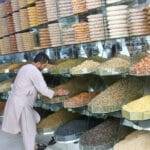Main Points In Hindi (मुख्य बातें – हिंदी में)
-
संदूषण का खतरा: आनुवंशिक रूप से संशोधित (जीएम) खाद्य पदार्थों में संदूषण के मामले स्थानीय उपभोक्ताओं और निर्यात बाजारों दोनों के लिए गंभीर खतरा हो सकते हैं।
-
जीएमओ का प्रचार: खेती की पारंपरिक तकनीकों की तुलना में, बहुराष्ट्रीय कंपनियां जीएम प्रौद्योगिकियों को अधिक कुशलता से पेश कर रही हैं, जिससे फसल विकास के समय को कम किया जा सकता है।
-
पाकिस्तानी मक्का का महत्व: मक्का पाकिस्तान की तीसरी सबसे महत्वपूर्ण अनाज फसल है और इसकी उत्पादन में प्रगति ने इसे दक्षिण एशिया में सबसे अधिक प्रति एकड़ उपज प्राप्त करने में मदद की है।
-
जीएम फसलों का विरोध: खाद्य फसलों के लिए आनुवंशिक रूप से संशोधित मक्का की खेती के खिलाफ कुछ हितधारकों का कड़ा विरोध है, जो किसानों और उपभोक्ताओं के हित में माना जा रहा है।
- निर्यात पर असर: विश्व स्तर पर जीएम खाद्य पदार्थों पर स्वास्थ्य और पर्यावरण संबंधी चिंताओं के कारण कई देशों ने प्रतिबंध लगा रखा है, जिससे पाकिस्तान के चावल और अन्य कृषि उत्पादों के निर्यात पर नकारात्मक प्रभाव पड़ सकता है।
Main Points In English(मुख्य बातें – अंग्रेज़ी में)
Here are the main points from the provided text:
-
Threat to Local and Export Markets: The discovery of contamination in shipments of genetically modified (GM) food poses a serious threat not only to local consumers but also to the country’s export markets, according to agricultural expert Khan Faraz.
-
Advantage of GM Technology: Faraz mentioned that while traditional seeds are specifically designed to thrive in local conditions, multinational companies are promoting GMOs due to their efficiency and the ability to reduce the development time for advanced crop varieties compared to traditional breeding techniques.
-
Importance of Corn Production: Corn is a cash crop in Pakistan, ranking as the third most important cereal crop after wheat and rice. It currently boasts an average yield of about four tons per hectare, making it significant in terms of economic value.
-
Resistance to GM Corn Cultivation: Some stakeholders in the seed business have opposed the commercial cultivation of GM corn due to concerns over public health and consumer interests, advocating instead for continued hybrid corn production that meets the country’s needs.
- Concerns Over GM Foods: Rising concerns about the health and environmental impacts of GM foods have led many countries to ban these products. Recently, reports of genetically modified contamination in organic basmati rice shipments have heightened fears and renewed opposition to introducing GM corn and other grains in Pakistan.


Complete News In Hindi(पूरी खबर – हिंदी में)
इस्लामाबाद: खेप में संदूषण पाए जाने के बाद आनुवंशिक रूप से संशोधित (जीएम) भोजन न केवल स्थानीय उपभोक्ताओं के लिए बल्कि देश के निर्यात बाजारों के लिए भी गंभीर खतरा पैदा करता है।
यह बात कृषि विशेषज्ञ खान फ़राज़ ने शनिवार को यहां मीडियाकर्मियों से बात करते हुए कही।
फ़राज़ ने कहा कि विशिष्ट स्थानीय परिस्थितियों में पनपने के लिए डिज़ाइन किए गए बीज पारंपरिक प्रजनन के माध्यम से देशों के लिए विकसित किए गए हैं, प्रासंगिक विशेषताओं वाले पौधों को एक साथ पार करके और वांछित संतानों का चयन करके। लेकिन चूंकि अधिक गंभीर मौसम पारंपरिक बीजों के लिए प्रतिकूल बढ़ती स्थितियां पैदा करता है, बहुराष्ट्रीय कंपनियां जीएमओ को बढ़ावा दे रही हैं क्योंकि अधिक कुशल और नई प्रौद्योगिकियां पारंपरिक फसल संशोधित तकनीकों की तुलना में इन उन्नत किस्मों के विकास के समय को कई वर्षों तक कम कर सकती हैं, उन्होंने कहा।
मक्का देश की नकदी फसल है और प्रचुर मात्रा में उपलब्ध है। गेहूं और चावल के बाद यह देश की तीसरी सबसे महत्वपूर्ण अनाज की फसल है। आर्थिक मूल्य की दृष्टि से यह पांचवीं सबसे बड़ी फसल है। वर्तमान में मक्के की औसत उपज लगभग चार टन प्रति हेक्टेयर है, जो पूरे क्षेत्र में सबसे अधिक है।
फ़राज़ ने कहा कि पिछले कुछ वर्षों में मक्का उत्पादन में प्रगति ने पाकिस्तान को पूरे दक्षिण एशिया में सबसे बड़ी प्रति एकड़ उपज हासिल करने में गौरव दिलाया है। बीज व्यवसायों में कुछ हितधारकों ने खाद्य फसल होने के कारण आनुवंशिक रूप से संशोधित मक्का की व्यावसायिक खेती की शुरूआत का कड़ा विरोध किया है। यह उपभोक्ता और किसानों के सर्वोत्तम हित में है कि देश में संकर मक्का का उत्पादन जारी रहे, जिसका देश में आवश्यकताओं के अनुरूप प्रचुर मात्रा में उत्पादन किया जा रहा है।
उन्होंने आगे कहा कि चावल पाकिस्तान के लिए एक महत्वपूर्ण निर्यात वस्तु है, और स्वास्थ्य और पर्यावरण पर उनके प्रभाव पर चिंताओं के कारण दुनिया के अधिकांश देशों में चावल, मक्का और अनाज सहित जीएम खाद्य पदार्थों पर प्रतिबंध लगा दिया गया है।
कुछ मीडिया रिपोर्टों के अनुसार कुछ यूरोपीय बाजारों में जैविक बासमती चावल की खेप में आनुवंशिक रूप से संशोधित (जीएम) संदूषण का पता चलने से देश और विदेश में चिंता फैल गई है और जीएम मक्का और अन्य को पेश करने के नए सिरे से किए गए प्रयासों के खिलाफ आवाजें तेज हो गई हैं। देश में अनाज उत्पाद.
कॉपीराइट बिजनेस रिकॉर्डर, 2024
Complete News In English(पूरी खबर – अंग्रेज़ी में)
Islamabad: The discovery of contamination in shipments of genetically modified (GM) food poses a serious threat not only to local consumers but also to the country’s export markets, according to agricultural expert Khan Faraz.
Speaking to reporters on Saturday, Faraz explained that seeds designed to thrive in specific local conditions have been developed through traditional breeding, which involves crossing plants with relevant traits and selecting desired offspring. However, extreme weather conditions are making it harder for traditional seeds to grow, prompting multinational companies to promote GMOs. These new, more efficient technologies can significantly reduce the time required to develop advanced crop varieties compared to traditional methods.
Maize is a crucial cash crop for the country and is abundantly available. It ranks as the third most important cereal crop in Pakistan, following wheat and rice, and is the fifth largest crop in terms of economic value. Currently, the average yield of maize is about four tons per hectare, which is the highest in the region.


Faraz noted that progress in maize production over the past few years has allowed Pakistan to achieve the highest yield per acre in South Asia. However, some stakeholders in the seed business have strongly opposed the commercial farming of genetically modified maize due to its status as a food crop. It is in the best interests of consumers and farmers to continue producing hybrid maize, which is being produced in abundance to meet the country’s needs.
He further mentioned that rice is an important export commodity for Pakistan, but concerns over health and environmental impacts have led many countries around the world to ban GM foods, including rice, maize, and other grains.
According to some media reports, the detection of genetically modified contamination in shipments of organic basmati rice in certain European markets has raised alarms both domestically and internationally, amplifying voices against newly renewed efforts to introduce GM maize and other crops in Pakistan.
Source link




